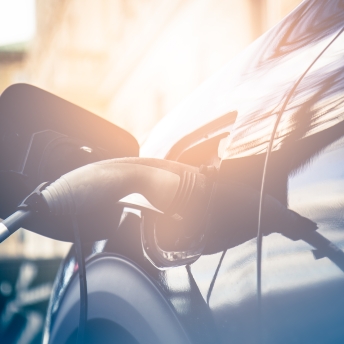Alexander Krug
With over 18 years of experience in automotive industry and management consulting, Alexander advises clients in growth strategies, technology roadmaps and transformation processes. He is an expert in mobility 4.0, digitalization and customer experience management.

Education
Past Experience

Alexander is Partner at Arthur D. Little’s Munich office. Alexander has extensive experience in the Automotive Industry, specializing in Mobility 4.0 projects with focus on electric vehicles, charging solutions and energy services.
In e-Mobility he has successfully completed more than 50 projects in the area product strategy, digital business models, system solutions and energy services for OEMs, suppliers and energy utilities. Within all his focus areas he has advised his clients from strategy development to implementation.
Prior to joining Arthur D. Little, Alexander worked in the automotive industry for Daimler AG, and in the consulting business for Ricardo Strategic Consulting.
His professional experience comprises activities in Germany, Austria, France, the UK, the US, Japan and China.
Alexander holds a Diploma in business administration from the University of Augsburg (Germany) and the University of Valladolid (Spain). He is fluent in German, English and Spanish.


ESG: Last call to take effective action

Truck electrification — Profit booster or white elephant?

Achieving resilience and sustainability for the EV battery supply chain


European battery recycling: An emerging cross-industry convergence


Electric vehicle charging in the UK and Europe


The evolution of public EV charging

Demystifying the charging challenge

Effective electric vehicle launch in Europe – Thinking beyond big markets

Alexander is Partner at Arthur D. Little’s Munich office. Alexander has extensive experience in the Automotive Industry, specializing in Mobility 4.0 projects with focus on electric vehicles, charging solutions and energy services.
In e-Mobility he has successfully completed more than 50 projects in the area product strategy, digital business models, system solutions and energy services for OEMs, suppliers and energy utilities. Within all his focus areas he has advised his clients from strategy development to implementation.
Prior to joining Arthur D. Little, Alexander worked in the automotive industry for Daimler AG, and in the consulting business for Ricardo Strategic Consulting.
His professional experience comprises activities in Germany, Austria, France, the UK, the US, Japan and China.
Alexander holds a Diploma in business administration from the University of Augsburg (Germany) and the University of Valladolid (Spain). He is fluent in German, English and Spanish.


ESG: Last call to take effective action

Truck electrification — Profit booster or white elephant?

Achieving resilience and sustainability for the EV battery supply chain


European battery recycling: An emerging cross-industry convergence


Electric vehicle charging in the UK and Europe


The evolution of public EV charging

Demystifying the charging challenge

Effective electric vehicle launch in Europe – Thinking beyond big markets
More About Alexander
- University of AugsburgDiploma Kaufmann
- University of ValladolidBusiness Administration
- Ricardo Strategic ConsultingPrincipal
- Arthur D. Little GmbHManager
- Daimler AGSales & Marketing
